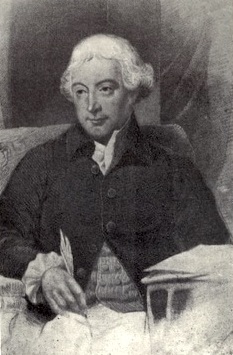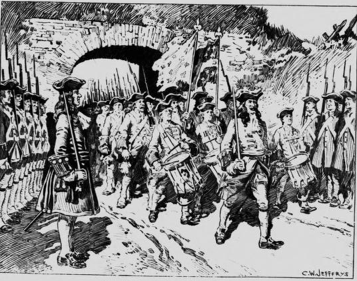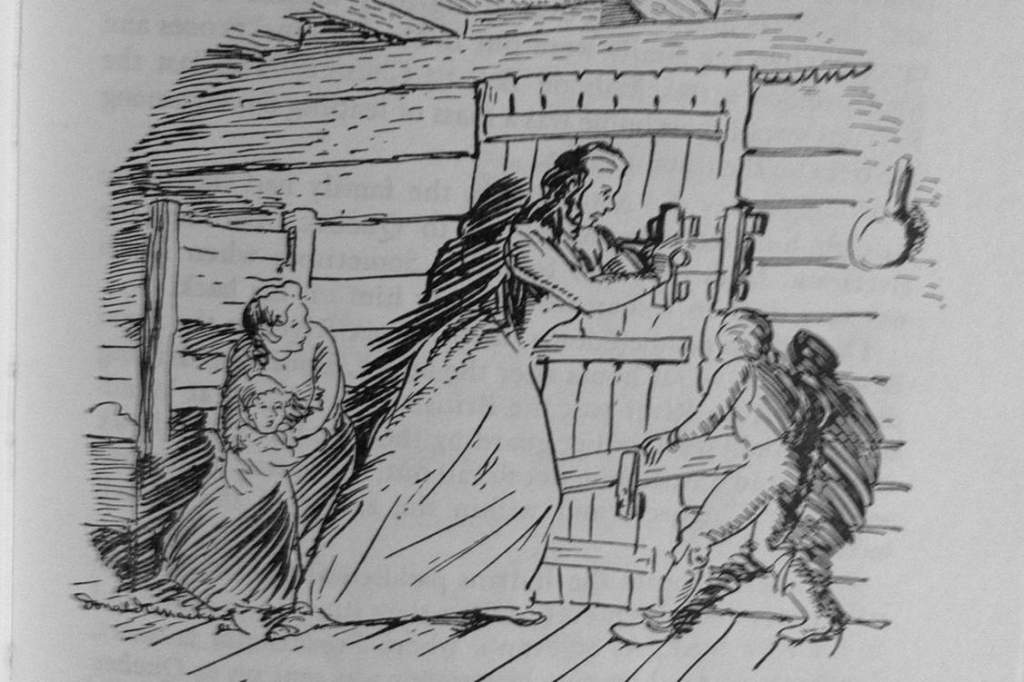|
History Of Prince Edward Island
The history of Prince Edward Island covers several historical periods, from the pre-Columbian era to the present day. Prior to the arrival of Europeans, the island formed a part of Mi'kma'ki, the lands of the Mi'kmaq people. The island was first explored by Europeans in the 16th century. The French later laid claim over the entire Maritimes region, including Prince Edward Island in 1604. However, the French did not attempt to settle the island until 1720, with the establishment of the colony of '' Île Saint-Jean''. After peninsular Acadia (present-day Nova Scotia) was captured by the British in 1710, an influx of Acadian migrants moved to areas still under French control, including ''Île Saint-Jean''. In 1758, the British gained control of the island as a result of the Ile Saint-Jean Campaign during the Seven Years' War. Shortly thereafter, British forces began to deport a number of Acadians from the island. The island was formally established as the British colony of St. J ... [...More Info...] [...Related Items...] OR: [Wikipedia] [Google] [Baidu] |
Pre-Columbian Era
In the history of the Americas, the pre-Columbian era, also known as the pre-contact era, or as the pre-Cabraline era specifically in Brazil, spans from the initial peopling of the Americas in the Upper Paleolithic to the onset of European colonization of the Americas, European colonization, which began with Christopher Columbus's voyage in 1492. This era encompasses the history of Indigenous peoples of the Americas, Indigenous cultures prior to significant European influence, which in some cases did not occur until decades or even centuries after Columbus's arrival. During the pre-Columbian era, many civilizations developed permanent settlements, cities, agricultural practices, civic and monumental architecture, major Earthworks (archaeology), earthworks, and Complex society, complex societal hierarchies. Some of these civilizations had declined by the time of the establishment of the first permanent European colonies, around the late 16th to early 17th centuries, and are know ... [...More Info...] [...Related Items...] OR: [Wikipedia] [Google] [Baidu] |
Port-LaJoye
Port-LaJoye was founded in 1720 on Île Saint-Jean, now Prince Edward Island. Settlement in the area began with the arrival of an expedition sent by the Comte de Saint-Pierre, who settled West of the Harbour entrance to the site named Port-LaJoye. Port-LaJoye became the administrative centre, although other sites had greater commercial potential. The British confirm this decision when they became masters of the region after the capitulation of Louisbourg in 1758. History The first European settlers in the area were French military personnel from Fortress Louisbourg who founded a settlement in 1720 named Port-LaJoye on the southwestern part of the harbour opposite the present-day city of Charlottetown. This settlement effort was led by Michel Haché-Gallant, who used his sloop to transport Acadian settlers from Louisbourg on Île Royal. Families who came to Port-LaJoye in 1720, were the family of Michel Haché-Gallant of Beaubassin, and the family Pierre and Joseph Martine fro ... [...More Info...] [...Related Items...] OR: [Wikipedia] [Google] [Baidu] |
Prince Edward Island Map 1775
A prince is a male ruler (ranked below a king, grand prince, and grand duke) or a male member of a monarch's or former monarch's family. ''Prince'' is also a title of nobility (often highest), often hereditary, in some European states. The female equivalent is a princess. The English word derives, via the French word ''prince'', from the Latin noun , from (first) and (head), meaning "the first, foremost, the chief, most distinguished, noble ruler, prince". In a related sense, now not commonly used, all more or less sovereign rulers over a state, including kings, were "princes" in the language of international politics. They normally had another title, for example king or duke. Many of these were Princes of the Holy Roman Empire. Historical background The Latin word (older Latin *prīsmo-kaps, ), became the usual title of the informal leader of the Roman senate some centuries before the transition to empire, the ''princeps senatus''. Emperor Augustus established the forma ... [...More Info...] [...Related Items...] OR: [Wikipedia] [Google] [Baidu] |
Noel Doiron
Noel or Noël may refer to: Christmas * , French for Christmas * Noel is another name for a Christmas carol Places * Noel, Missouri, United States, a city *Noel, Nova Scotia, Canada, a community *Noel Park, a suburb in Greater London, England * 1563 Noël, an asteroid * Mount Noel, British Columbia, Canada People * Noel (given name) * Noel (surname) Arts, entertainment, and media Music *Noel, another term for a pastorale of a Christmas nature * ''Noël'' (Joan Baez album), 1966 * ''Noël'' (Josh Groban album), 2007 * ''Noel'' (Noel Pagan album), 1988 * ''Noël'' (The Priests album), 2010 * ''Noel'' (Phil Vassar album), 2011 * ''Noel'' (Josh Wilson album), 2012 *''Noel'', 2015 Christmas album by Detail *"The First Noel", a traditional English Christmas carol *"Noel", a 2007 song by All Time Low from '' The Party Scene'' *Noël (singer) (active late 1970s), American disco singer *Noel (band), a South Korean group *Noel Pagan, American freestyle singer who recorded un ... [...More Info...] [...Related Items...] OR: [Wikipedia] [Google] [Baidu] |
Siege Of Louisbourg (1758)
The siege of Louisbourg was a pivotal operation of the French and Indian War in 1758 that ended French colonial dominance in Atlantic Canada and led to the subsequent British campaign to capture Quebec in 1759 and the remainder of New France the following year. Background The British government realized that with the Fortress of Louisbourg under French control, the Royal Navy could not sail up the St. Lawrence River unmolested for an attack on Quebec. After an expedition against Louisbourg in 1757 led by Lord Loudon was turned back due to a strong French naval deployment, the British under the leadership of William Pitt resolved to try again with new commanders. Pitt assigned the task of capturing the fortress to Major General Jeffery Amherst. Amherst's brigadiers were Charles Lawrence, James Wolfe and Edward Whitmore, and command of naval operations was assigned to Admiral Edward Boscawen. The chief engineer was John Henry Bastide who had been present at the first ... [...More Info...] [...Related Items...] OR: [Wikipedia] [Google] [Baidu] |
Expulsion Of The Acadians
The Expulsion of the Acadians was the forced removal of inhabitants of the North American region historically known as Acadia between 1755 and 1764 by Great Britain. It included the modern Canadian Maritime provinces of Nova Scotia, New Brunswick, and Prince Edward Island, along with part of the US state of Maine. The expulsion occurred during the French and Indian War, the North American theatre of the Seven Years' War. Prior to 1758, Acadians were deported to the Thirteen Colonies, then later transported to either Britain or France. Of an estimated 14,100 Acadians, approximately 11,500 were deported, of whom 5,000 died of disease, starvation or shipwrecks. Their land was given to settlers loyal to Britain, mostly immigrants from New England and Scotland. The event is largely regarded as a crime against humanity, though the modern-day use of the term "genocide" is debated by scholars. According to a 1764 census, 2,600 Acadians remained in Nova Scotia at that time, having e ... [...More Info...] [...Related Items...] OR: [Wikipedia] [Google] [Baidu] |
French And Indian War
The French and Indian War, 1754 to 1763, was a colonial conflict in North America between Kingdom of Great Britain, Great Britain and Kingdom of France, France, along with their respective Native Americans in the United States, Native American allies. European historians generally consider it a related conflict of the wider 1756 to 1763 Seven Years' War, although in the United States it is viewed as a singular conflict unassociated with any European war. Although Britain and France were officially at peace following the Treaty of Aix-la-Chapelle (1748), tensions over trade continued in North America. These culminated in a dispute over the Forks of the Ohio, and the related French Fort Duquesne which controlled them. In May 1754, this led to the Battle of Jumonville Glen, when Colony of Virginia, Virginia militia led by George Washington ambushed a French patrol. In 1755, Edward Braddock, the new Commander-in-Chief, North America, planned a four-way attack on the French. None s ... [...More Info...] [...Related Items...] OR: [Wikipedia] [Google] [Baidu] |
Siege Of Port Royal (1710)
The siege of Port Royal (5–13 October 1710),Dates in this article are given in the New Style; many older English accounts use Old Style dates for this action: 24 September to 2 October also known as the Conquest of Acadia, was a military siege conducted by British regular and provincial forces under the command of Francis Nicholson against a French Acadian garrison and the Wabanaki Confederacy under the command of Daniel d'Auger de Subercase, at the Acadian capital, Port-Royal (Acadia), Port Royal. The successful British siege marked the beginning of permanent British control over the peninsular portion of Acadia, which they renamed Nova Scotia, and it was the first time the British took and held a French colonial possession.According to , prior to 1710, English forces had only raided, sacked, and temporarily occupied French colonial possessions. Other territories the English conquered came at the expense of other nations or aboriginals. After the French surrender, the Brit ... [...More Info...] [...Related Items...] OR: [Wikipedia] [Google] [Baidu] |
Eldon, Prince Edward Island
Eldon is a community in Queens County, Prince Edward Island, Canada. Eldon is southeast of Charlottetown in the township of Lot 57. History The Acadians arrived in Pointe Prime, Ile St. Jean (present day Eldon, PEI) in 1750. According to the 1752 census, Noel Doiron's family and many others arrived from the community of Noel, Nova Scotia to escape hostilities after the establishment of Halifax (1749), which sparked Father Le Loutre's War. They built a church and several dwellings in the area during the eight years they were in the village. The whole community of Acadians died during the French and Indian War in the Ile Saint-Jean Campaign (1758). They were deported Deportation is the expulsion of a person or group of people by a state from its Sovereignty, sovereign territory. The actual definition changes depending on the place and context, and it also changes over time. A person who has been deported or ... on the Duke William, which sank in the English channel. ... [...More Info...] [...Related Items...] OR: [Wikipedia] [Google] [Baidu] |
Acadian Exodus
The Acadian Exodus (also known as the Acadian migration) happened during Father Le Loutre's War (1749–1755) and involved almost half of the total Acadian population of Nova Scotia deciding to relocate to French controlled territories. The three primary destinations were: the west side of the Mesagoueche River in the Chignecto region (near the modern New Brunswick-Nova Scotia border), Isle Saint-Jean (now Prince Edward Island) and Île-Royale (now Cape Breton Island). The leader of the Exodus was Father Jean-Louis Le Loutre, whom the British gave the code name "Moses". Le Loutre acted in conjunction with Governor of New France, Roland-Michel Barrin de La Galissonière, who encouraged the Acadian migration. A prominent Acadian who transported Acadians to Ile St. Jean and Ile Royal was Joseph-Nicolas Gautier. The overall upheaval of the early 1750s in Nova Scotia was unprecedented. Atlantic Canada witnessed more population movements, more fortification construction, and more ... [...More Info...] [...Related Items...] OR: [Wikipedia] [Google] [Baidu] |
Father Le Loutre's War
Father Le Loutre's War (1749–1755), also known as the Indian War, the Mi'kmaq War and the Anglo-Mi'kmaq War, took place between King George's War and the French and Indian War in Acadia and Nova Scotia. On one side of the conflict, the Kingdom of Great Britain, British and New England Colonies, New England colonists were led by British officer Charles Lawrence (British Army officer), Charles Lawrence and New England United States Army Ranger#Colonial Period, Ranger John Gorham (military officer), John Gorham. On the other side, Father Jean-Louis Le Loutre led the Mi'kmaq and the Military history of the Acadians, Acadia militia in guerrilla warfare against settlers and British forces. At the outbreak of the war there were an estimated 2500 Mi'kmaq and 12,000 Acadians in the region. While the British Siege of Port Royal (1710), captured Port Royal in 1710 and were ceded peninsular Acadia in 1713, the Mi'kmaq and Acadians continued to contain the British in settlements at Port-Ro ... [...More Info...] [...Related Items...] OR: [Wikipedia] [Google] [Baidu] |
Deportation Of The Acadians (22289143685)
The Expulsion of the Acadians was the forced removal of inhabitants of the North American region historically known as Acadia between 1755 and 1764 by Great Britain. It included the modern Canadian Maritime provinces of Nova Scotia, New Brunswick, and Prince Edward Island, along with part of the US state of Maine. The expulsion occurred during the French and Indian War, the North American theatre of the Seven Years' War. Prior to 1758, Acadians were deported to the Thirteen Colonies, then later transported to either Britain or France. Of an estimated 14,100 Acadians, approximately 11,500 were deported, of whom 5,000 died of disease, starvation or shipwrecks. Their land was given to settlers loyal to Britain, mostly immigrants from New England and Scotland. The event is largely regarded as a crime against humanity, though the modern-day use of the term "genocide" is debated by scholars. According to a 1764 census, 2,600 Acadians remained in Nova Scotia at that time, having e ... [...More Info...] [...Related Items...] OR: [Wikipedia] [Google] [Baidu] |








